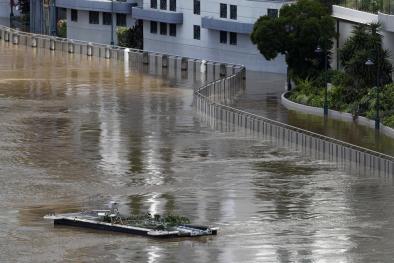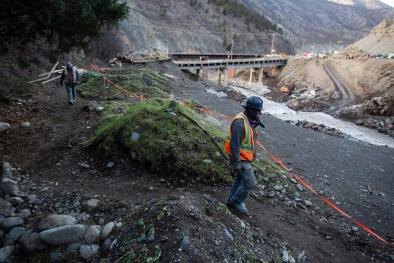Rain, Heat Hit East Asia

Multiple kinds of extreme weather are pummeling wide swaths of East Asia. In northern China, the remnants of Typhoon Doksuri dumped more rain in a 72-hour period than ever recorded since 1860 and set off the worst flooding in decades. Beijing was drenched by 744.8 mm (29.3 in) of rain over that period and one weather station to its southwest recorded 1,003.3mm (39.5 inches) of rain. Extreme precipitation events are a clear signal of climate change as hotter air holds (and can then release) more moisture — with well-above-average sea surface temperatures near the coast adding even more. Hundreds of thousands of people across the region have been displaced with numerous deaths reported but the ultimate toll is still unknown. More than 1,100 miles to the southeast, Typhoon Khanun is forecast to make a U-turn and hit Okinawa and other nearby islands — again — after hammering the archipelago earlier this week. All this comes as extreme heat boils South Korea and across 32 of Japan's 47 prefectures, both countries with rapidly aging populations especially vulnerable to heat stress.
(China rain: AP, The Guardian, The Guardian; Typhoon Khanun: AP, Washington Post $; Heat: Washington Post $, Reuters; Climate Signals background: Extreme precipitation increase, Sea surface temperature increase, Extreme heat and heatwaves)
To receive climate stories like this in your inbox daily click here to sign up for the Hot News Newsletter from Climate Nexus:
Related Content





